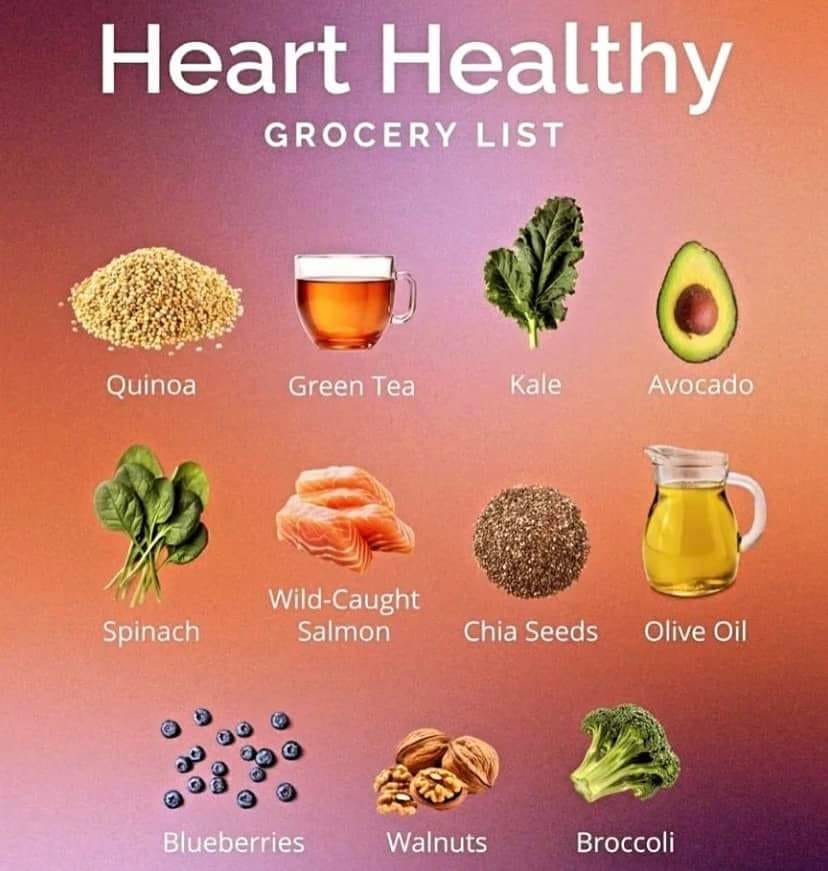Introduction to Heart Healthy Foods
Maintaining a healthy heart is vital for overall well-being. Diet plays a crucial role in heart health, and consuming the right foods can significantly reduce the risk of heart disease. In this article, we’ll explore the power of heart-healthy foods and how they can promote cardiovascular wellness.
Understanding Heart Health
Before delving into specific foods, it’s essential to understand what contributes to heart health. Factors such as cholesterol levels, blood pressure, and inflammation play key roles. A diet rich in nutrients can help manage these factors and support a strong, resilient heart.
The Role of Diet in Heart Health
Foods to Avoid
Certain foods can increase the risk of heart disease, including those high in saturated and trans fats, refined sugars, and sodium. These should be limited or avoided altogether.
Benefits of Heart Healthy Foods
On the flip side, incorporating heart-healthy foods into your diet can provide numerous benefits. These foods are typically rich in antioxidants, vitamins, minerals, and omega-3 fatty acids, all of which support heart health by reducing inflammation, lowering cholesterol, and improving blood vessel function.
Top Heart Healthy Foods
Leafy Greens
Leafy greens such as spinach, kale, and Swiss chard are packed with vitamins, minerals, and antioxidants. They are low in calories and high in fiber, making them excellent choices for heart health.
Berries
Berries like strawberries, blueberries, and raspberries are bursting with antioxidants known as flavonoids. These compounds have been shown to reduce the risk of heart disease by improving blood flow and lowering blood pressure.
Fatty Fish
Fatty fish such as salmon, mackerel, and sardines are rich in omega-3 fatty acids, which are beneficial for heart health. These fats can help lower triglycerides, reduce inflammation, and decrease the risk of abnormal heart rhythms.
Whole Grains
Whole grains like oats, quinoa, and brown rice are excellent sources of fiber, vitamins, and minerals. They can help lower cholesterol levels and improve heart health by reducing the risk of heart disease and stroke.
Nuts and Seeds
Nuts and seeds, such as almonds, walnuts, and flaxseeds, are packed with heart-healthy nutrients, including unsaturated fats, fiber, and plant sterols. Incorporating them into your diet can help lower cholesterol and promote overall heart health.
Avocado
Avocado is a nutrient-dense fruit rich in monounsaturated fats, potassium, and fiber. It can help lower bad cholesterol levels and reduce the risk of heart disease when eaten in moderation as part of a balanced diet.
Olive Oil
Olive oil is a staple of the Mediterranean diet, which is renowned for its heart-healthy benefits. It is high in monounsaturated fats and antioxidants, which can help lower inflammation and improve cholesterol levels.
Incorporating Heart Healthy Foods into Your Diet
Incorporating heart-healthy foods into your daily meals doesn’t have to be complicated. Simple swaps like using olive oil instead of butter, adding berries to your morning oatmeal, or snacking on nuts instead of chips can make a significant difference.
The Importance of Balanced Nutrition
While focusing on specific heart-healthy foods is essential, it’s equally important to maintain a balanced diet overall. Eating a variety of nutrient-rich foods from all food groups ensures that your body gets the necessary vitamins, minerals, and antioxidants to support optimal heart health.
Additional Lifestyle Factors for Heart Health
In addition to diet, other lifestyle factors also play a crucial role in heart health. Regular exercise, stress management techniques like yoga or meditation, and getting an adequate amount of sleep are all important for maintaining a healthy heart.
Consulting with a Healthcare Professional
It’s essential to consult with a healthcare professional before making any significant changes to your diet or lifestyle, especially if you have existing heart health concerns or medical conditions. They can provide personalized advice and guidance tailored to your individual needs.
Conclusion
Incorporating heart-healthy foods into your diet is a simple yet powerful way to support cardiovascular wellness and reduce the risk of heart disease. By making mindful choices and prioritizing nutrient-rich foods, you can nourish your heart and enjoy a healthier, happier life.






